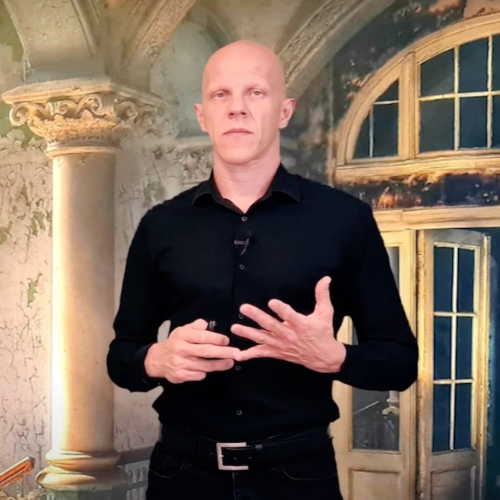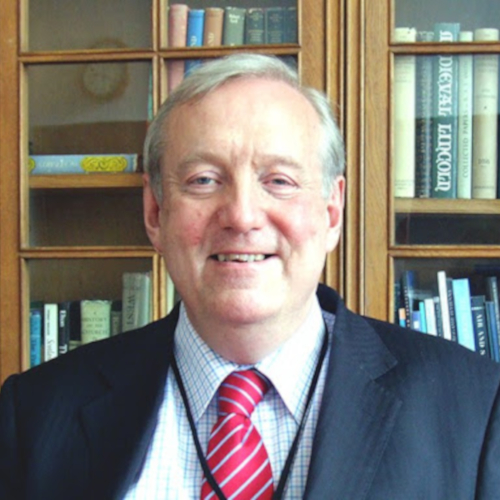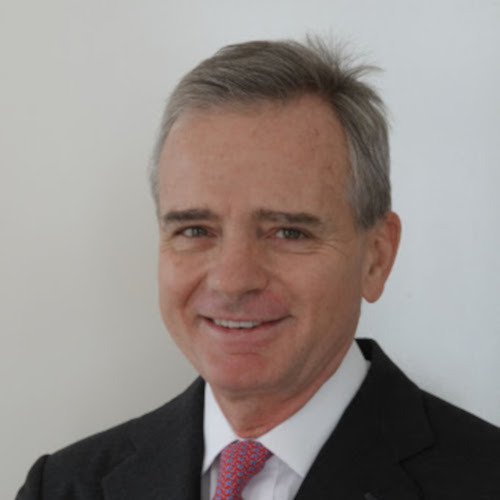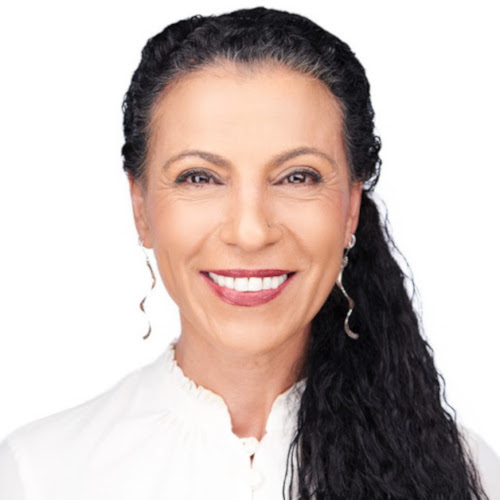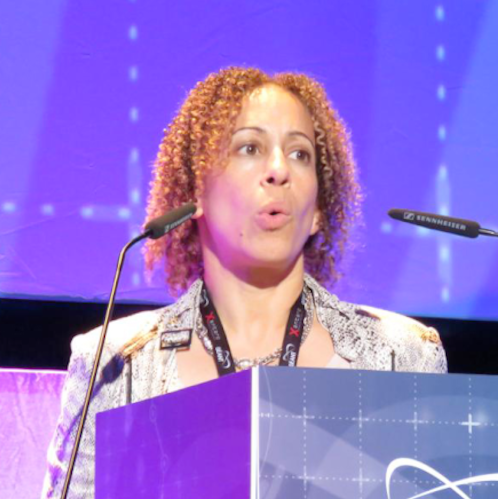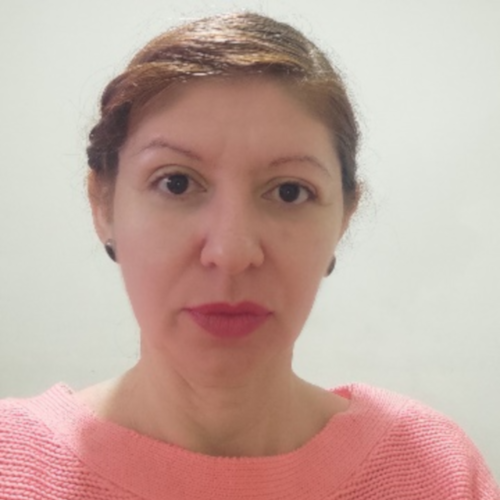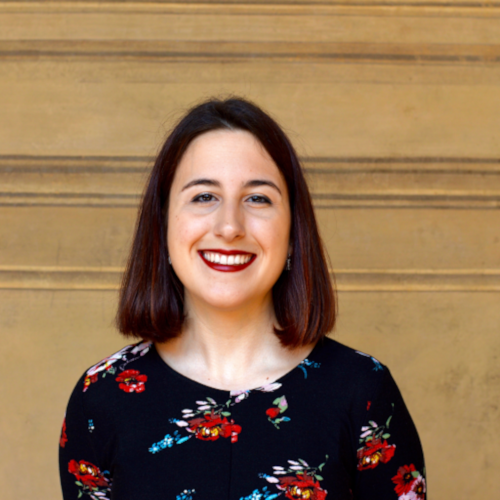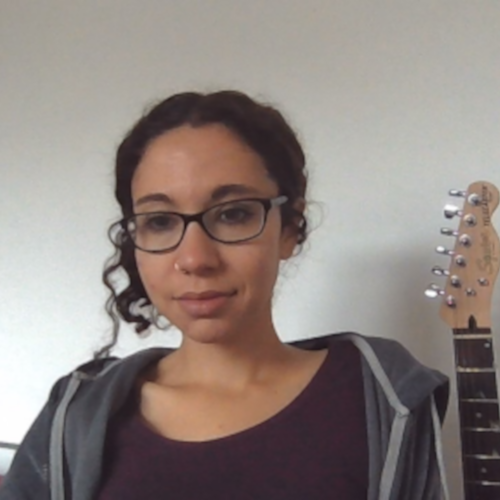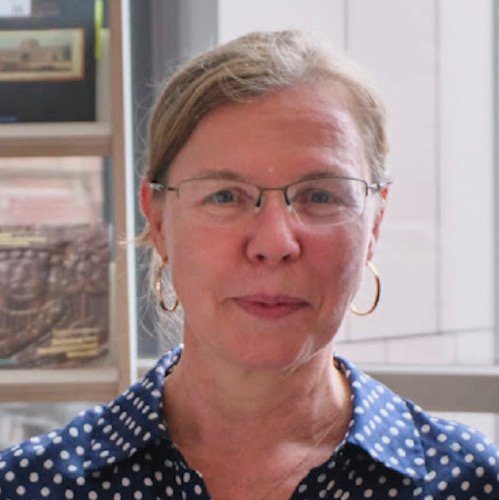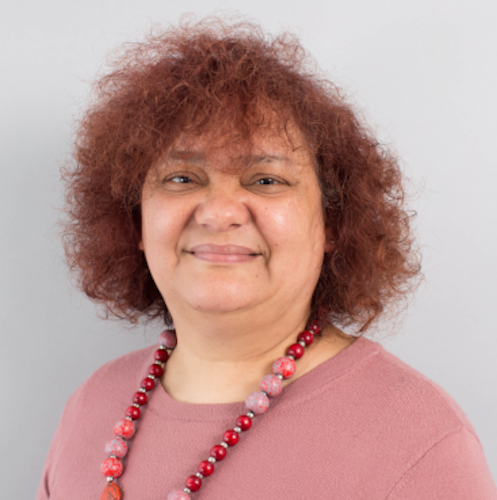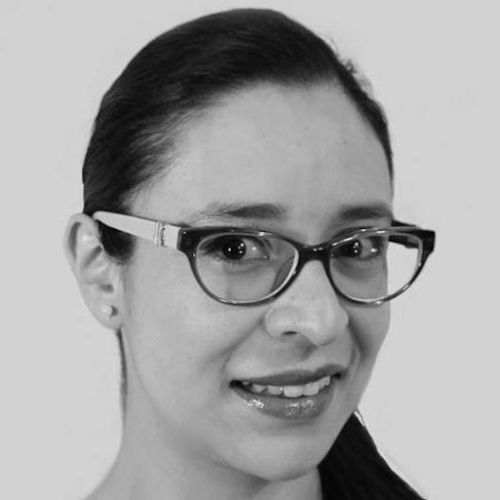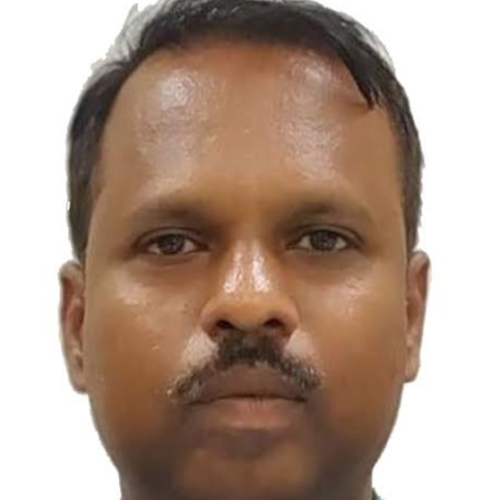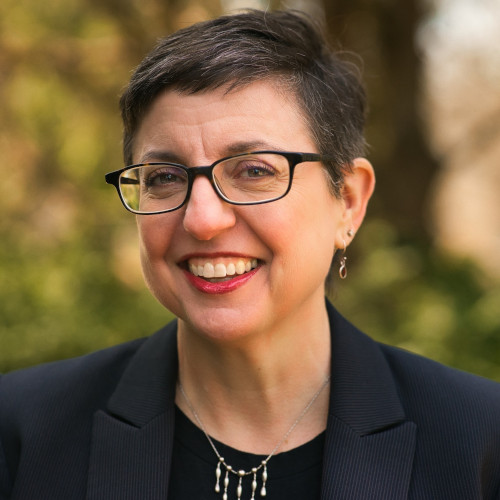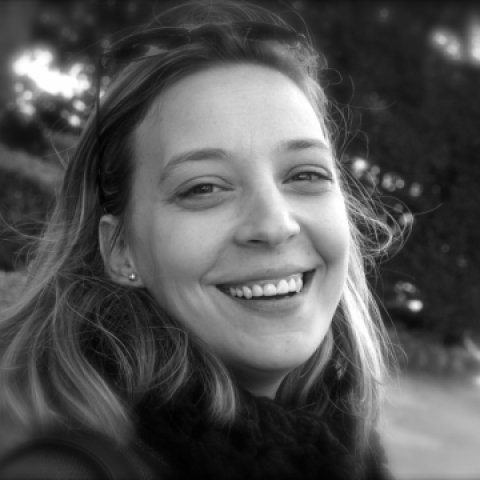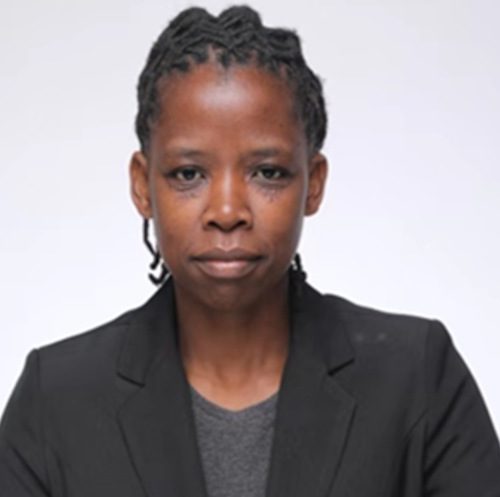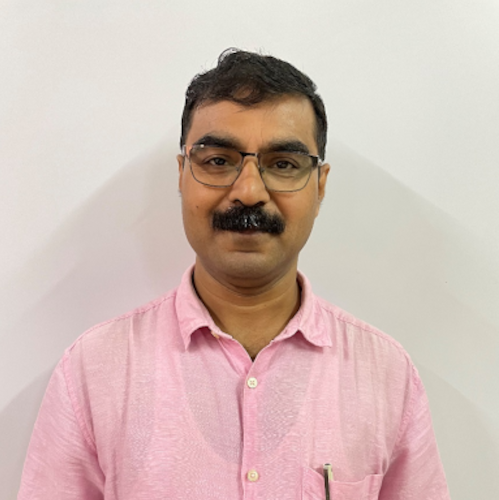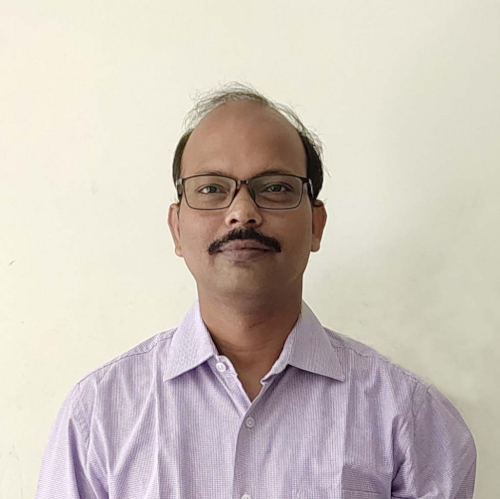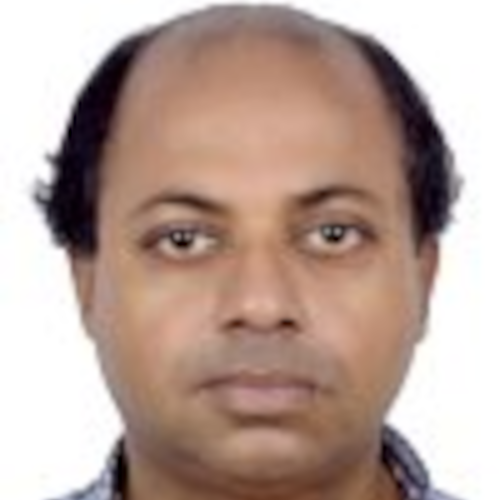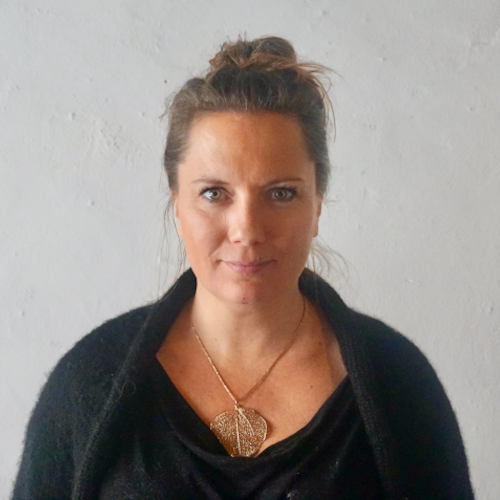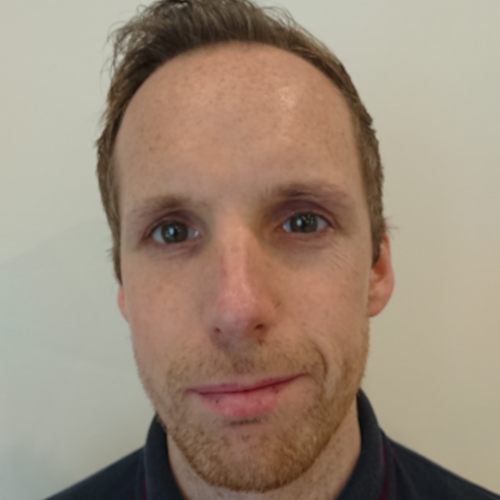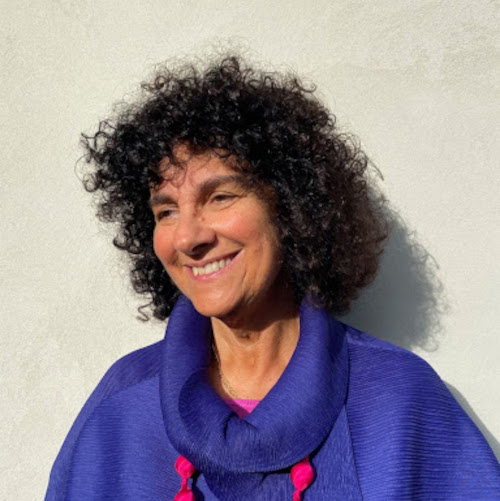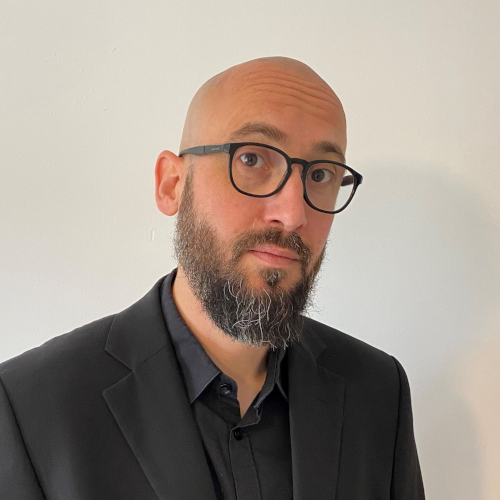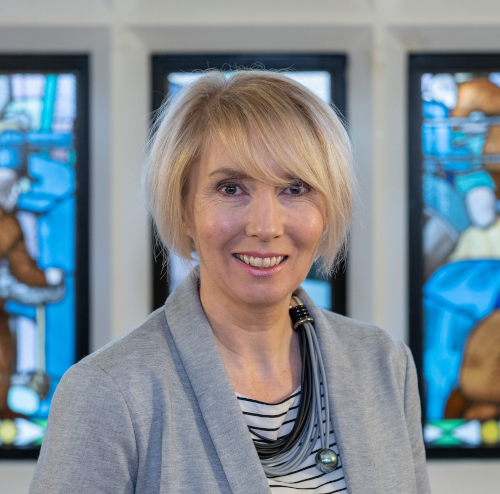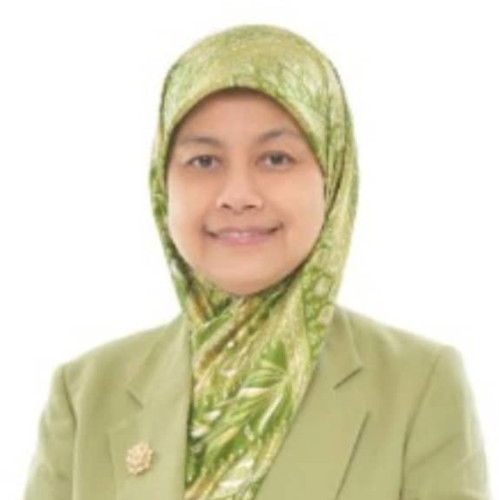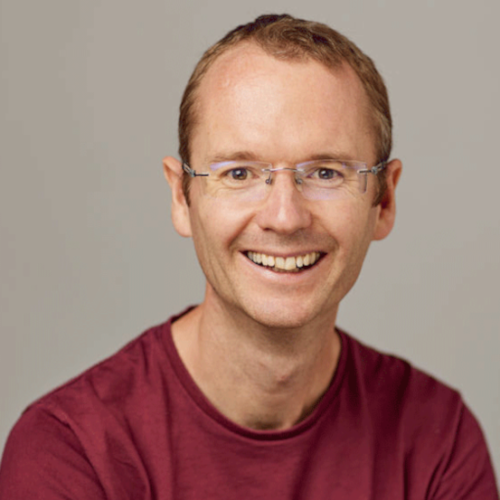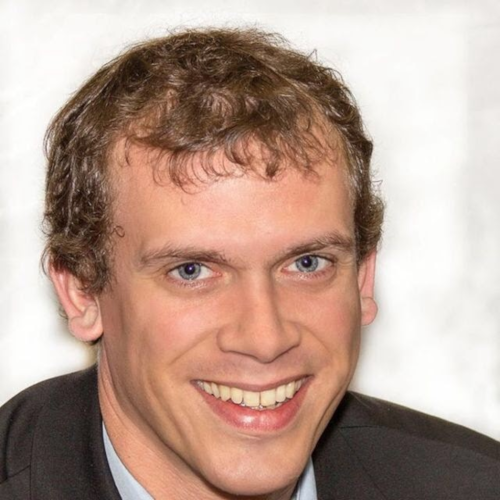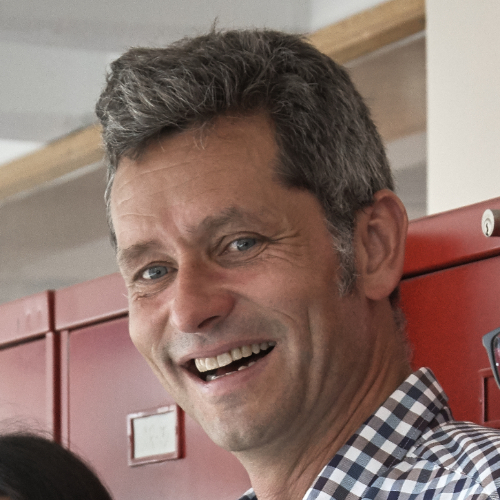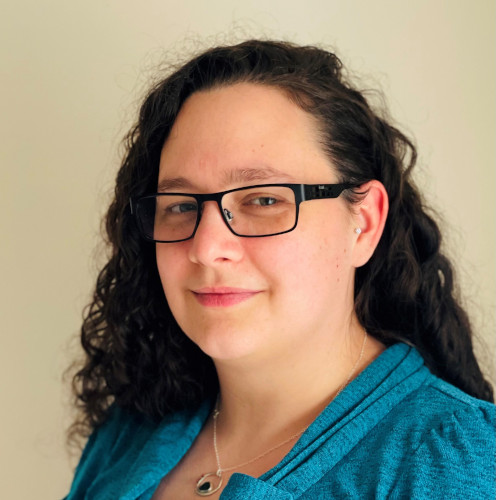OAI13 content is now available online!
Read the slides or (re-)watch the sessions by using the buttons beside.
Individual talks can be watched on Vimeo, too.
Schedule
Times and dates in the programme are Central European Summer Time (CEST)
The content of papers and presentations/addresses delivered at OAI13 represents the views of the speakers/presenters themselves, not those of the OAI13 Scientific Committee.
- 04 Sep
- 05 Sep
- 06 Sep
- 07 Sep
- 08 Sep
8:00-11:00 PDT | 11:00-14:00 EDT | 12:00-15:00 CLST | 16:00-19:00 BST | 17:00-20:00 CEST | 20:30-23:30 IST | 23:00-02:00 CST | 01:00-04:00 (Sept. 5) AEST
Session 1: Academic Publishing Reform. What does the future hold?
Chaired by Dr Paul Ayris and Dr Tiberius Ignat
Open Access has become embedded in many research cultures across the globe. The UNESCO Recommendation on Open Science recognizes that ‘Open scientific knowledge refers to open access to scientific publications, research data, metadata, open educational resources, software, and source code and hardware that are available in the public domain or under copyright and licensed under an open licence that allows access, re-use, repurpose, adaptation and distribution under specific conditions, provided to all actors immediately or as quickly as possible regardless of location, nationality, race, age, gender, income, socio-economic circumstances, career stage, discipline, language, religion, disability, ethnicity or migratory status or any other grounds, and free of charge.’ The speakers in this session will address these issues in some detail, pointing to the benefits and challenges of a fully Open Access world. John Willinsky first became an advocate for Open Access in 1998, after working on a collaborative project with a local Canadian newspaper and discovering he couldn’t provide the paper’s readers with the relevant research online to accompany the articles on education that the paper was publishing.“That was a turning point. I realized something was wrong with this picture,” says the Professor Willinsky. The speaker will explore the role of copyright principles and legislation and suggest ways in which these might be amended to suit a full Open Access environment. Claudio Aspesi is a respected market analyst with more than a decade of experience covering the academic publishing market for international investors. Claudio will look at how scholarly communication is broken and how it can be fixed. Is the current commercial system one which self-reinforces a research/publishing cycle that disfavors historically marginalized communities? Gali Halevi is the Director of the Institute for Scientific Information (ISI)™. Gali will look at the impact of the war between Russia and Ukraine on our concept of open access publishing. In a landscape where national security is threatened, is it still possible to deliver a fully open access world? What are the issues that need to be considered in order to arrive at a conclusion? The session will end with a Panel, comprising our three speakers, who will be joined by Dr Tiberius Ignat. Tiberius is passionate about Open Science and has a particular interest in citizen science. He has a PhD in Library and Information Science from the University of Bucharest. He is keen to explore whether open access/open science has any boundaries and how/whether sharing can work in times of conflict.
Academic Publishing Reform. What does the future hold?
September 4, 2023
17:00 - 17:05
Opening TalkWatch it on Vimeo
17:05 - 17:40
The Case for Amending Copyright To Enable Sustainable Universal Open AccessScholarly publishing’s principal stakeholders (including the big publishers) are now in agreement that “open access” to research publications will do more to promote scientific progress than the subscription journal system of the print era. Yet this open access consensus is not well served by copyright laws that encourage restricting, rather than opening, access to research. Up to this point stakeholders have largely pursued legal and extralegal workarounds—with embargoes, final drafts, illegal copies, and Creative Commons (CC) licenses—that are failing to deliver universal open access with all due speed and at a fair price. Rights retention efforts such as Secondary Publishing Rights, are of limited applicability and involve embargoes. It is time, then to consider a more substantial change in copyright reform for open science. As an example, this talk will consider the benefits of legislating statutory licensing (long used with music copyright) for research publications, in which case research’s institutional users and funders are required to fairly compensate scholarly publishers for immediate open access. Such a legal remedy is not too much to request, given how many digital-era reforms of copyright have taken place for every area of intellectual property except science, with such reforms working internationally, which would, of course, be the goal of this initiative.
17:40 - 18:15
Scholarly Publishing is broken. How do we fix it?Scholarly publishing has been criticized for decades because of its commercialization and its exclusionary design. The problem is even deeper: scholarly publishing as it is designed today is unable to address major scientific emergencies, as the COVID pandemic demonstrated (as publishers were pressured to suspend licenses and many researchers and practitioners used preprints to communicate their ongoing findings). These ad hoc suspensions, however, do not address other global emergencies (such as climate change and the loss of biodiversity) and it is morally indefensible to adopt them for some diseases and not others. There is vast experimentation, however, and there will be new models that we cannot even conceive of. It is impossible to be prescriptive about what each of these new or emerging models can do to address the current failings, but some principles can be identified. We are proposing a four-part test that can help decide which models to support, with the goal of starting a debate on what are the appropriate principles that should be adopted.
18:15 - 18:25
Music Break
18:25 - 19:00
The impact of the Russia – Ukraine war on scientific open access publishing and early career researchersTimes of conflict put the entire scientific endeavour at risk, especially when a country needs to divert funding and persons to areas of military action and broader security. The impact of conflict on science can be seen in a lower number of publications and overall participation in science. The continuing conflict between Russia and Ukraine has a negative effect on their publications rates and within that, Open Access. In addition, an analysis of Ukraine's early career researchers landscape shows how this specific group of scientists was and still is impacted by the continuing war. In this presentation, we will look at the rates of Open Access publishing in both countries and the impact of the war on early career researchers through the bibliometric lens. |
6:00-9:00 PDT | 9:00-12:00 EDT | 10:00-13:00 CLST | 14:00-17:00 BST | 15:00-18:00 CEST | 18:30-21:30 IST | 21:00-24:00 CST | 23:00-02:00 AEST
Session 2: Ownership of scholarly infrastructure
Chaired by Dr Martyn Rittman and Marco Tullney
Open research needs open infrastructure in order to reach its potential. A broad range of organisations provide infrastructure that members of the scholarly community rely on, with a diversity of size, resourcing, and governance models. Are these organisations well-resourced and sustainable? What would happen if they could no longer continue to operate? Who should fund these services? Where are there gaps in the current infrastructure? How do we ensure the long-term availability and openness of the services? What role can and should commercial organisations play in running infrastructure? This session seeks to examine these questions along with the crucial roles that these organisations play.
Save the world with innovation? Open scholarship is the key!
Throughout history, changes in how research is conducted and shared have resulted in significant increases in innovation that have benefited society. How we communicate research and scholarship has been functionally unchanged since the mid-1600s when scientific societies were first formed, and the scholarly journal was born. With the advent of electronic publishing, open scholarship, and formal research artifact sharing, we are just at the start of a scholarly communication evolution that could drive solutions to our most pressing global challenges, including climate change, new diseases, and uneven societal opportunity. But this impact is not a given. With history as our guide, we will consider the necessary characteristics that the next scholarly communication evolution must possess to facilitate explosive innovation to save the world. And, we will explore the role of open infrastructure as a foundation for this scholarship transformation.
The open academic infrastructure and the scientific journal in Venezuela
Latin America maintains an academic infrastructure, which in its great majority belongs to public academic institutions where universities and publishers drive and promote open content through platforms that offer free software, among them, the Universidad Nacional Experimental de los Llanos Occidentales Ezequiel Zamora (Unellez) and operates in the provinces of Apure, Barinas, Cojedes and Portuguesa, being the largest in the western part of Venezuela, The Unellez, has a Journal System, which contains 26 scientific journals of different disciplines. Among them, the Journal of the Latin American Digital Observatory Ezequiel Zamora (Odlez), which has been operating since 2017 and its areas of knowledge are social and political sciences. However, due to the political crisis affecting Venezuela, it shakes all dimensions of the country, and consequently the Educational System. Many will wonder how the academic infrastructure of scientific journals in Venezuela works? From the experience of Odlez, we can express, in terms of governance, this type of project only receives support from the university in the use of an open source free Software platform (Open Journal Systems), which guarantees open standards, data collection, open content, among others. Sustainability is limited by institutional funding, resources are managed autonomously by the national and international editorial team (ad honorem) and consequently the operation depends on the human capital that composes it. There are no government programs or projects that support these initiatives with financial and non-financial resources. This increases the gaps in the open academic infrastructure in the country, since the technology and resources necessary to maintain the sustainability and security of scientific communication in Venezuela are still in use due to the use of open source free software.
Break
A case study: OpenCitations, an open science infrastructure seeking long-term sustainability
OpenCitations is a community-based open science infrastructure organization with the mission of harvesting and openly publishing accurate and comprehensive metadata describing the world's academic publications and the scholarly citations that link them, under open licenses at zero cost and without restriction for third-party analysis and re-use. To build an infrastructure that is sustainable in the long term and follows pure Open Science principles, OpenCitations has adopted in full the Principles for Open Scholarly Infrastructures, and regularly monitors its compliance to the three categories of “Insurance”, “Governance” and “Sustainability”. While OpenCitations fully satisfies the “Insurance” principles, it still lacks an executive body besides the directors and is far from achieving complete financial sustainability. In order to strengthen the weak points, OpenCitations has recently launched two internal Working Groups dedicated to the themes of “Governance Evolution” and “Community Building”, which in OpenCitations are deeply connected. Indeed, the current OpenCitations’ governance relies on the administrative management of the Research Centre for Open Scholarly Metadata, an independent research centre within the University of Bologna, whose fundamental bodies are OpenCitations’ Council (made up of OpenCitations members) and the elected International Advisory Board, which guides OpenCitations strategies. OpenCitations’ stakeholder community is so integrated into OpenCitations’ existence both in a financial and strategic way, and with its advice it ensures that OpenCitations’ original aim of free provision of open and free bibliographic and citation data, services, and software is maintained. However, despite the valuable support from the community and the successful involvement in the SCOSS second funding cycle, OpenCitations is still seeking a ‘business model’ which could help move it from being a 'sustainable infrastructure' (in POSI terms) to being a financially sustained infrastructure upon which the global scholarly community can rely for open bibliographic and citation metadata for many years to come.
The Open Book Collective: An Infrastructure for Equity and Diversity
This paper introduces the Open Book Collective, a new member-governed charity devoted to supporting the production and dissemination of Open Access Books from small-to-medium publishers. The OBC is committed to supporting equity and bibliodiversity in OA publishing. This means supporting small-to-medium publishers in diverse geographic and linguistic settings, while making content produced by OBC members accessible to a wider range of authors and institutions. Our model supports publishers in moving away from Book Processing Charges, which can re-entrench the inequalities already inherent in academia, leading to a stultification of fields. The OBC positions itself as an alternative to the monopolies of a handful of dominant publishing houses in academia across the globe. Our membership, comprised of librarians, publishers, OA service providers, librarians, and other supporters works collectively bring about a fairer and more sustainable model of open book publishing. From our development research in collaboration with our library colleagues, we know that many libraries and institutions wish to support OA Books and have budget set aside to do so. But a confusing array of options, lack of easily readable metadata, and the varied workflow of OA publishers makes it difficult and time-consuming for libraries and their institutions to know where to invest their support. The OBC platform offers a fast and simple way for libraries to compare publishers’ catalogues, packages, business plans, and values, allowing the creation of pre-made or bespoke subscription packages before generating a quotation. The OBC then manages the subscription, and delivers benefits to libraries including maximally readable metadata, easy integration into existing workflows, and a guarantee of quality via the vetting and application process our publisher members must go through. We assess all membership packages on the platform, to ensure they are priced fairly and that funding will support high quality OA publishing and distribution.
Towards sustainable open infrastructure: The case of CORE
CORE is one of the largest indexing services for open access research papers from repositories and journals. It is a not-for-profit service dedicated to the open access mission and the Principles of Open Scholarly Infrastructure (POSI). With over 11,000 data providers, it has supported open research for over ten years, as well as assisting institutions to comply with funders’ requirements for open availability of funded content. From September 2023 CORE will no longer be funded by Jisc, but will move to a membership model, with its data providing members being able to influence CORE's development roadmap. As we all know, research funding is typically for a limited duration and susceptible to termination at any moment. A Membership model brings several sustainability benefits, including increased income diversity as well as an opportunity for a more direct interaction between the CORE service and its members. Our vision is for CORE to remain not-for-profit and to continue to provide free access for the vast majority of its users. We have therefore designed a three-tier membership model with the lowest tier being completely free and the two other tiers delivering extra benefits in the form of guaranteed technical support and tools for open access compliance checking with funders. In this talk, I will present the challenges as well as opportunities in transitioning to a membership model for a large OA infrastructure service that aims to stay committed to the POSI values.
Slides and video are not available for this talk
6:00-9:00 PDT | 9:00-12:00 EDT | 10:00-13:00 CLST | 14:00-17:00 BST | 15:00-18:00 CEST | 18:30-21:30 IST | 21:00-24:00 CST | 23:00-02:00 AEST
Session 3: Diamond Open Access
Chaired by Dr Frank Manista and Wouter Schallier
The Diamond OA study, commissioned by cOAlition-S and funded by Science Europe, was published back in March of 2021. It explored “the areas that are critical for OA diamond journals, from legal structures and governance to technical capabilities, editorial processes, and funding models. The recommendations made in the report are designed to help research funding organisations, institutions, scholarly societies, and infrastructures sustainably strengthen OA diamond journals in the context of Open Science.”
Since then, Diamond has become a significant topic for discussion, with some suggesting that it could be the silver bullet for Open Access. In the transition towards Open Access (OA), institutional publishing is challenged by fragmentation and varying service quality, visibility, and sustainability. The Operas DIAMAS project was a direct outgrowth of the study and again reflective of the importance and interest in this publication path. This panel of five speakers from and outside Europe addresses their concerns, hopes and aspirations around Diamond OA.
Diamond OA in Europe: lessons learnt from the Diamas and Craft-OA projects
In September 2022 and January 2023, two EC funded projects started working on the development of resources to support Diamond OA in the European Research Area (ERA). While Diamas aims at providing non-technical resources to Diamond journals and publishers, such as guidelines, quality standards, training materials and toolkits, Craft-OA focuses on the technical side of publishing operations. The objective of Craft-OA is to upgrade publishing softwares used in the community, improve interoperability between platforms, and develop a “diamond discovery hub” that will support diamond journals’ visibility. Both project outputs will constitute the building blocks of a network of Capacity Centres that will form the European node of a global federation supporting Diamond OA worldwide. Our presentation will present the lessons learnt so far in the course of action of our projects. In particular: There is a wide variety of national, linguistic and disciplinary situations across the ERA regarding the organising and coordinating capacity of the Diamond OA community. There is no single quality standard for Diamond OA that can be applied uniformly across all specific national, linguistic and disciplinary communities. On the other hand, it is possible to identify a common core that can be adopted by all, forming the basis of what we call an “extensible” quality standard (EQSIP). Considering the variety of situations described above, it does not make sense to propose a centralised one-size-fits-all solution that would apply uniformly across the board. A distributed federated framework that selects, aggregates, and curates resources is much more adapted to the actual reality, while ensuring a core of common quality standards. There are specific challenges in engaging with a number of stakeholders who do not immediately identify themselves as “Diamond”, because they practise it without much reflection on what it entails. This is particularly true for many small learned societies who are de facto publishers of a single journal and are not aware of their particular status.
A distinctive scholarly publishing model: working together to accelerate diamond open access - an African focus
Open access guarantees access to scholarly content that has minimal barriers to sharing and expanding upon knowledge. Diamond open access, through an African lens, is more than the removal of financial barriers to access and sharing scholarly output. It is finding equitable solutions, within its socio-economic context, which should be “underpinned by social justice principles as it has the capacity to usher in equity and equal opportunity” (Raju and Badrudeen, 2022: 54). The purpose of the presentation is to discuss the need for communities of practice to collaborate and share skills for an inclusive scholarly ecosystem, with a social justice approach of ultimately channelling opportunities to advance African research. Social justice in scholarly publishing allows for the dismantling of systemic bias within the established scholarly ecosystem and rebuilding this ecosystem by including those who were previously marginalised. Communities of practice for this ecosystem, with the driver of social justice, should be with academic libraries, African researchers and with information technology skills. Academic libraries have the opportunity to support the dissemination of scholarship through library publishing by providing skills development to other libraries, as well as guidance to authors and editors of scholarly journals and books. The communities of practice for the African academy should aspire to disrupt and rebuild the publishing landscape so that it’s reflective of their society, by encouraging the publishing of local content that is multilingual and foster partnerships with co-authors on the continent, including providing opportunities and mentorship for the next generation of researchers. The dearth of IT infrastructure and skills in Africa will be addressed through collaboration. Together the scholarly communication landscape can be more diverse and inclusive, with the equitable solution of increased scholarship emanating from Africa, and not merely a landscape that is representative of global north research. The University of Cape Town (UCT) libraries have developed a continental publishing platform, using diamond open access, to grow and expand African scholarship. The social justice drive to make African scholarship freely accessible and shared has resulted in some fledgling communities of practice. The librarians provide training and support through train-the-trainer model for library publishing and the African researchers are encouraged to publish local scholarship for their own societies, including in multiple languages. The continental platform provides one publishing infrastructure which all African institutions can freely publishing in showcasing their own institution’s scholarship. Collaboration in diamond open access can enable the acceleration of scholarship. However, by underpinning this collaboration on social justice principles, diamond open access enables participation to a global kaleidoscope of knowledge by including all research voices, specifically Africa’s marginalised voices. The African proverb of going further together, especially through social justice communities of practice, is important for a diverse, yet inclusive scholarly ecosystem, as together the research landscape will showcase the variety of scholarship that is needed to impact and build up all societies.
The Value and Challenges of Student-Run Journals: Lessons from a Student Editor
Student-run journals are unique spaces for learning about and engaging with the scholarly publication landscape. Student editors and reviewers build their authorial voice and academic identity by leading the editorial process, which may help increase their sense of belonging to academia. Moreover, student journals serve diverse communities and are particularly committed to open access. Indeed, many existing student journals are run under the diamond model as universities host and support their operations. Despite the outlined benefits, there are several challenges when running a student journal. For instance, student journals may be considered few relevant as they are perceived as less prestigious and reputable than the so-called ‘top tier’ journals. This perception might result in lacking institutional or financial support. In this talk, I will share the lessons learned from my experience as a student editor of Current Issues in Education, a diamond open-access journal sponsored by Arizona State University. I will highlight the opportunities I encountered as a doctoral student to actively engage in discussions about topics, methods, and approaches in educational research. Finally, I will present my arguments to increase the support for student-run journals as they are spaces for innovation and recognition of the epistemic value of OA journals beyond commercial interests.
Break
The Power of Community-Driven Publishing for Inclusive, Transparent, and Impactful Scholarly Communication
Emerging community-led publishing models, called "Diamond Open Access" initiatives, aim to provide unrestricted access to scholarly publications, enabling them to be freely read and published. These models have the potential to address challenges of inclusivity, diversity, and transparency in scholarly communication. Using the Journal of Horticultural Sciences as a case study, this presentation highlights the potential of Diamond Open Access to transform scholarly communication in the Global South. The AmeliCA/Redalyc initiative promotes non-commercial open access through inclusiveness, collaboration, capacity building, and advocacy, providing a viable alternative to traditional publishing models while still on par with commercial ones. Scholarly societies should recognize the importance of community-led initiatives and the need for greater collaboration to create a more equitable and just academic publishing landscape. The presentation also calls for increased government investment in these initiatives to foster greater collaboration among stakeholders and to rethink the current publishing model to better serve the needs of the scholarly community in the region. Through non-commercial Diamond Open Access, countries in the Global South can achieve greater visibility and recognition for their research output, contributing to the global knowledge commons in a more equitable and sustainable manner.
OA Without Tears: Platforms and Workflows for Actually Equitable Open Scholarly Communication
The many colors and flavors of open-access currently in circulation have obfuscated two key issues: first, that one of the originating goals of the open access movement was creating greater equity by reducing the stranglehold that extractive corporations have developed over scholarly publishing; and second, that the dominant OA publishing mechanisms that have since emerged have if anything reduced equity, by attaching high fees to the formats that allow publications to circulate most widely. If actually equitable scholarly communication is our goal, we need to begin again, rethinking our platforms and workflows -- and above all, the ownership and governance of those platforms and workflows -- to allow for more meaningful scholar-led practices. This presentation will focus on work being done by Humanities Commons to develop open, collective, equitable communication processes that can give all scholars agency over the ways that work in their fields circulates.
1:00-5:00 PDT | 4:00-8:00 EDT | 5:00-9:00 CLST | 9:00-13:00 BST | 10:00-14:00 CEST | 13:30-17:30 IST | 16:00-20:00 CST | 18:00-22:00 AEST
Session 4: Implementing the UNESCO Recommendation on Open Science
Chaired by Dr Martyn Rittman and Jens Vigen
The UNESCO Recommendation on open science agreed in November 2021 see the opportunity to increase participation, accelerate research, and work against misinformation by making science more open. Similarly, in the US the OSTP memo from August 2022 calls for an open approach to support innovation and make progress in key global challenges such as environmental justice, cancer research, and protecting civil liberties.
There are five key pillars to the UNESCO Recommendation:
- open scientific knowledge
- open science infrastructures
- science communication
- open engagement of societal actors
- and open dialogue with other knowledge systems
This session seeks to explore the implementation of these and similar initiatives to promote open research on a global scale and their likely consequences. We are seeking contributions from different parts of the globe and various organisation types. Aspects to cover may include national frameworks for implementation; challenges and opportunities for stakeholders (e.g., publishers, universities, libraries); development and support of repositories for data, software, preregistrations, etc.; evidence of downstream benefits of open research for business, innovation, and society.
UNESCO Open Science Recommendation: International Policy Framework for Open Science
Recognizing Open Science as a true game-changer in addressing the pressing planetary and socio-economic challenges, UNESCO led a global dialogue with the aim of developing the first international standard-setting instrument on Open Science in the form of a UNESCO Recommendation since 2019. The UNESCO Recommendation on Open Science, unanimously adopted on 23 November 2021 by 193 UNESCO Member States defines shared values and principles for Open Science and identifies concrete measures on open access and open data, with proposals to bring society closer to science and commitments to facilitate the production and dissemination of scientific knowledge worldwide. If adequately implemented across the world and by different open science actors, the Recommendation has the potential of significantly advancing science that is more accessible, collaborative, transparent, inclusive and more responsive to the needs of society.
How Open is Open? The African Perspectives
Advances in digitalization and the drive to equitable access to knowledge have given as the open access publishing and scholarly communication industry. This publishing industry generally provides an internet based digital platform for the publication of research output with unrestricted access to the public. The growth of open access publishing and scholarly communication has been very remarkable in the global North. However, this has created a huge financial burden in many developing countries in sharing their findings as the author needs to pay thousands of dollars. This, session will not be discussed in detail this obvious inequity, because there is much more hidden challenge that the globally north general does experience. the knowledge might free available to access digitally, however can everyone access equally? Is the cost of access/connection the digital platform equitable in all geographical locations?
Break
India's Roadmap Towards Implementing the UNESCO Recommendation on Open Science
India is one of the leading developing nations involved in the global open science (OS) movements since the last two decades. In November 2021, UNESCO adopted the “UNESCO Recommendation on Open Science” ratified by 193 nations including India. In 2023, India is also hosting the Presidency of G20 nations and working towards achieving the “Common Digital Future: Open, Accessible and Inclusive Digital Public Infrastructure” as reflected in a G20 Task Force. In 2020, the Government of India released the 5th National Science, Technology and Innovation Policy (STIP), where Open Science is discussed at length. Presently different public agencies are working towards implementing open science infrastructure across the country, involving the research funding agencies, academic and research institutions, and the scholarly publishers. This presentation evaluates the roadmap towards implementing the UNESCO Recommendation on Open Science in India. In addition, the presentation will also assess the India's position in the global open science scenario, as reflected on the international directories of open science/open access initiatives and open science monitoring web portals, including the DOAJ, OpenDOAR, UNESCO's Global Open Access Portal (GOAP). ROARMAP, besides others. India's initiatives will also be compared with the other emerging developing nations namely China, Brazil, Russia and South Africa (BRICS Nations). A number of scholars have compared OS initiatives of BRICS nations. This presentation will also review their studies, and identify most significant OS initiatives undertaken in Indian institutions.
Carrot & Stick: Policy as a driver for Open Science
In order to establish Open Science as the default at the UZH, the Open Science team developed a university wide, Open Science Policy. This document sets out expectations and recommendations on ways in which the practices and values of an open academic culture can be integrated into the structure of the UZH, and in its research and teaching. All UZH employees and students were able to comment on the draft policy in 2020 by means of a survey. Over 2000 UZH members took part in the survey, 642 filled out the entire questionnaire. At the same time, the Open Science Committee reviewed the policy, and several faculties and institutes provided institutional feedback. An overwhelming majority welcome an Open Science culture and support practices that promote open exchange, transparency, reproducibility and accountability. However, the fear that career opportunities for young researchers were at risk. This means it is important to communicate clearly that in view of the global movement towards Open Science, an open scientific practice can also improve career opportunities in the future. It also became clear that the requirements of the individual departments are very different and must therefore be taken into account during the implementation of the policy. A main point of criticism furthermore was the fact that Open Science requirements were formulated as mandatory in the first version of the policy, because such fundamental changes in the research culture need time and resources, this input is in line with the UNESCO Recommendation. Based on this feedback, the draft has been revised and now includes expectations and recommendations instead of requirements. This also addresses the concerns that many changes in the scientific process require time and resources.
How do we measure success for Open Science?
To deliver the benefits of Open Science – economic, societal, research impact and for researcher careers – increasing adoption of Open Science practices is a prerequisite goal. There is a growing need for reliable data on Open Science practices to better understand researchers’ needs, and to understand the effectiveness of policies and solutions at increasing adoption of Open Science. In 2022 PLOS launched ‘Open Science Indicators’, (OSI) an initiative that tracks adoption of Open Science practices – such as sharing data, code, protocols and preprints – over time in the scholarly literature. This initiative aligns with UNESCO’s goal to implement an Open Science Monitoring Framework. PLOS developed requirements for an OSI measurement framework, underpinned by six guiding principles: (1) Align with established community definitions or approaches wherever possible; (2) Measure what practices are being carried out now; (3) Ensure interoperability across diverse communities; (4) Be scale-able across large volumes of research outputs; (5) Share results of Open Science Indicators/ monitoring activities openly; (6) Use Open Science Indicators responsibly. OSIs are being delivered in partnership with DataSeer, using a repeatable approach that can be delivered at scale across thousands of published articles, and which reaches recognised thresholds for accuracy. Importantly, OSIs should not be used to rank journals, institutions or individuals. The initial results of the project analysed nearly 70,000 articles published between the start of 2019 and the end of Q2 2022 and results are being updated through 2023 as new articles are published (https://theplosblog.plos.org/2022/12/open-science-indicators-first-dataset). The results show changes in adoption of data, code and preprint sharing, and reveal differences in adoption – and potential for adoption – between communities and regions, The data are being shared openly to engage the community in a conversation about how we can use better quantitative, longitudinal evidence on Open Science practices to support increased adoption of Open Science globally.
5:00-6:00 PDT | 8:00-9:00 EDT | 9:00-10:00 CLST | 13:00-14:00 BST | 14:00-15:00 CEST | 17:30-18:30 IST | 20:00-21:00 CST | 22:00-23:00 AEST
Poster Session
Chaired by Kirsty Wallis
Poster Session
You can read all posters and vote for your favourite one at https://oai.events/oai13/posters/. At the end of the workshop, authors from the most liked on will get a prize! The Posters are also openly available on Zenodo.
During the session, two Zoom rooms will allow participants to interact with the posters' authors:
Poster session 1, with the following authors:
- Arasteh, Sona ; Mueller, Katharina ; Klaus, Tabea ; Varachkina, Hanna ; Bargheer, Margo. Diamond Open Access – a Robust, Accessible and Federated Network for Journals
- Armengou, Clara ; Klaus, Tabea ; Kuchma, Iryna ; Melinščak Zlodi, Iva ; Stojanovski, Jadranka ; Ševkušić, Milica ; Vrcon, Andrej. The Extensible Quality Standard for Institutional Publishing (EQSIP)
- Drummond, Christina ; Rabar, Ursula. Project Update – Applying the EU International Data Space (IDS) Model for Open Scholarly Communications Metrics Exchange
- Hachelafi, Hamid. Sciences ouvertes en médecine sur le continent africain. Une réalité et des perspectives
- Nyahodza, Lena ; Raju, Jaya. A strategy developed as a means to support open scholarship at a university in a low-income country in the global south
- Schulte, Judith. OPERAS, a community-led research infrastructure for open scholarly communication
- Cardoso, Ana. The power of using open persistent identifiers in the research ecosystem
- Catterall, Janet. Open Access: A snapshot of the landscape in Australia & Aotearoa New Zealand in 2022
- Ferguson, Lea Maria ; Pampel, Heinz ; Bertelmann, Roland ; Meistring, Marcel ; Weisweiler, Nina. Helmholtz Open Science Policy - Implementing the UNESCO Recommendation on Open Science
- Massari, Giovanna ; Miniussi, Carlo ; Iacovella, Vittorio ; Maltese, Vincenzo. Open intersections - A synergic approach to Open Science at the University of Trento
- Stein, Lisa-Marie ; Wagner, Alexander ; Deinzer, Gernot ; Sippl, Colin. The openCost project: Integrating publication cost data into institutional repositories
- Žurić Jakovina, Iva ; Mumelaš, Dolores. The topic of bibliotherapy, self-help and well-being in open science in Croatia
5:00-8:00 PDT | 8:00-11:00 EDT | 9:00-12:00 CLST | 13:00-16:00 BST | 14:00-17:00 CEST | 17:30-20:30 IST | 20:00-23:00 CST | 22:00-01:00 AEST
Session 5: Research Evaluation
Chaired by Josh Brown and Dr Elena Giglia
Research assessment is cumbersome and labour-intensive. If it is misused or made hypercompetitive it can create perverse effects. Assessment exercises that are focused only on journal articles as the ‘final’ research output are also not aligned with the Open Science principle of sharing all the research process elements as early and open as possible.
Initiatives such as DORA and CoARA have sought to create momentum for reform, but while organisations and individuals are keen to be seen to support these, institutional or funder policies too often contradict or conflict with the principles espoused in such movements. In this session, we will explore these contradictions and tensions, attempt to surface some of the reasons that progress has been so hard to achieve, and look at emerging policy and technical developments that could offer a way forward.
We will hear from the recently launched Coalition for Advancing Research Assessment (CoARA) about their analysis of the ills of research assessment, and their framework for reform. We will also hear from a research professional who is tasked with supporting research assessment, to gain insight from their experience and their perception of the pace and direction of change. We will also hear from a researcher about their experience of research assessment, how it shapes their priorities and activities, and the impact it has on research culture.
Informed by these perspectives, we will then widen the discussion out using a debate format, with three groups on the virtual stage: research funders engaged in national research evaluations, advocates for reform of research assessment, and innovators who are trying to bring transparency and efficiency to the information gathering that underpins research evaluation. The audience will be invited to challenge the debaters, and to share their experiences, and at the end will be asked to vote on how persuasive the positions they have heard argued for or against have been.
Welcome and introduction
Watch it on Vimeo
Research assessment: what's the problem & how might we fix it?
This talk will outline some of the key drivers for research assessment reform and discuss some of the key themes emerging from assessment reform initiatives with a particular focus on the work of the Coalition on Advancing Research Assessment.
Research assessment as a lever to improve scientific practices
There is great scope for improvement in the transparency, reproducibility, and trustworthiness of published scientific results. By improving research assessment we may be able to better ensure that researchers are recognised and rewarded for genuine knowledge contributions. Experimentation with new assessment methods and follow-up of effects are urgently needed.
Research Assessment at Higher Learning Institutions in Malaysia
The research landscape in Malaysia evolved very quickly in the first decade of the new millennium with the country’s most established universities being accorded Research Universities (RU) status. Significantly higher research investments were made in the form of block grants to the RUs, in addition to funding by various agencies. A research assessment tool was developed to measure the research performance of the RUs, and was later applied to all universities. The parameters assessed are those relating to input or resources acquired by the institution that contribute directly to research, output coming directly from research, and some outcome of research. The measurements are primarily quantitative, and have not changed much over more than a decade. More qualitative measures which looks at process and impact is much needed as the universities’ roles extend beyond academia and research gets translated into the real world.
Break
Debate on research assessment
Watch it on Vimeo
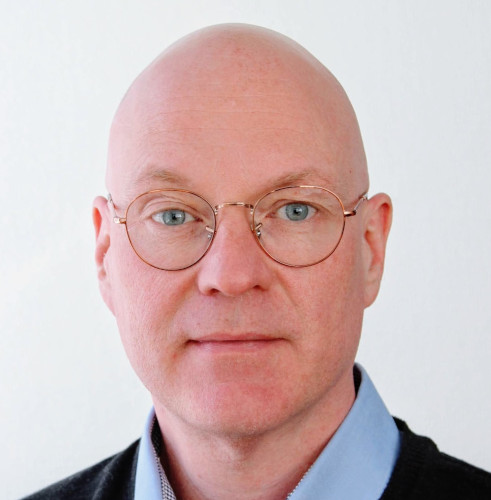
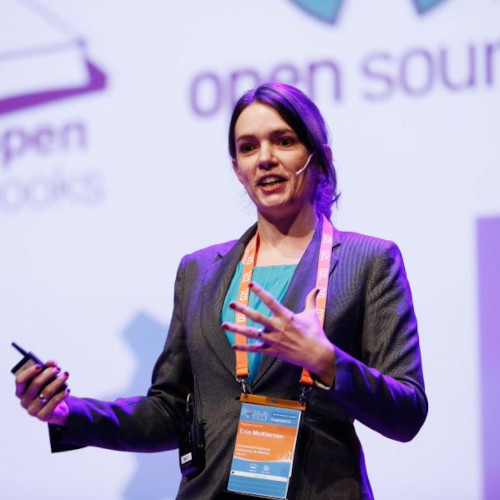

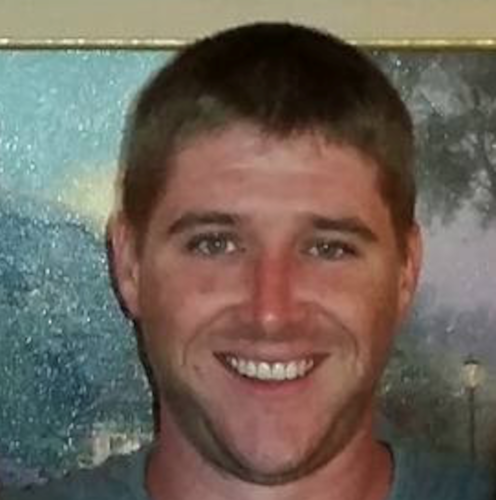
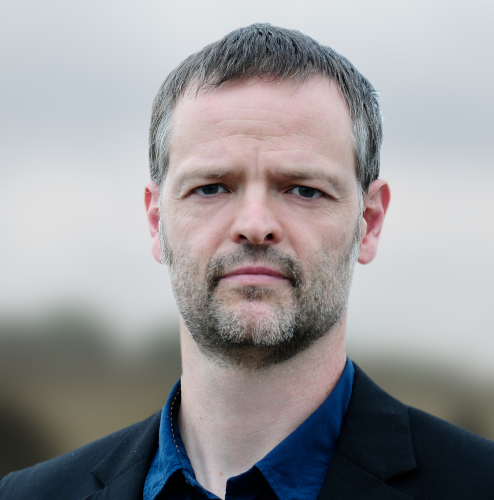
Wrap-up and closing remarks
Watch it on Vimeo
